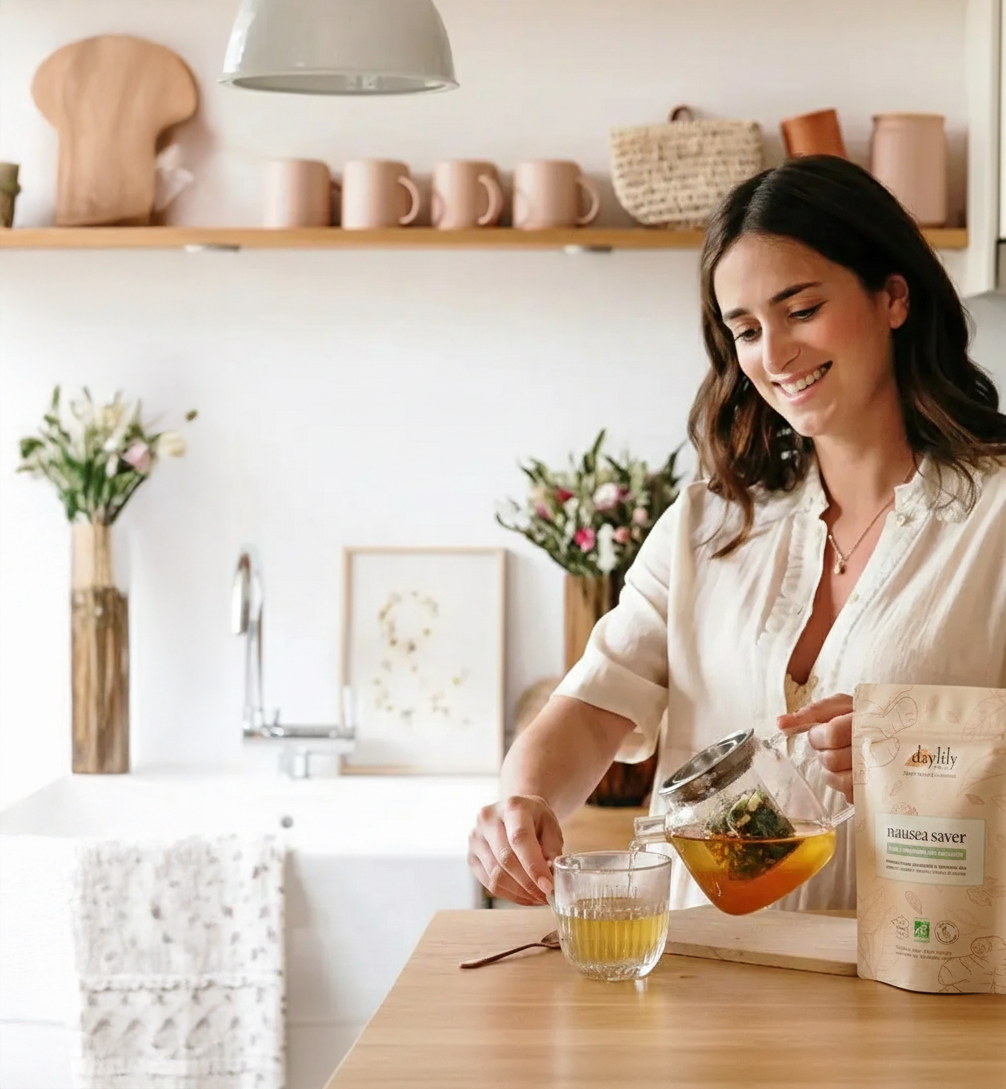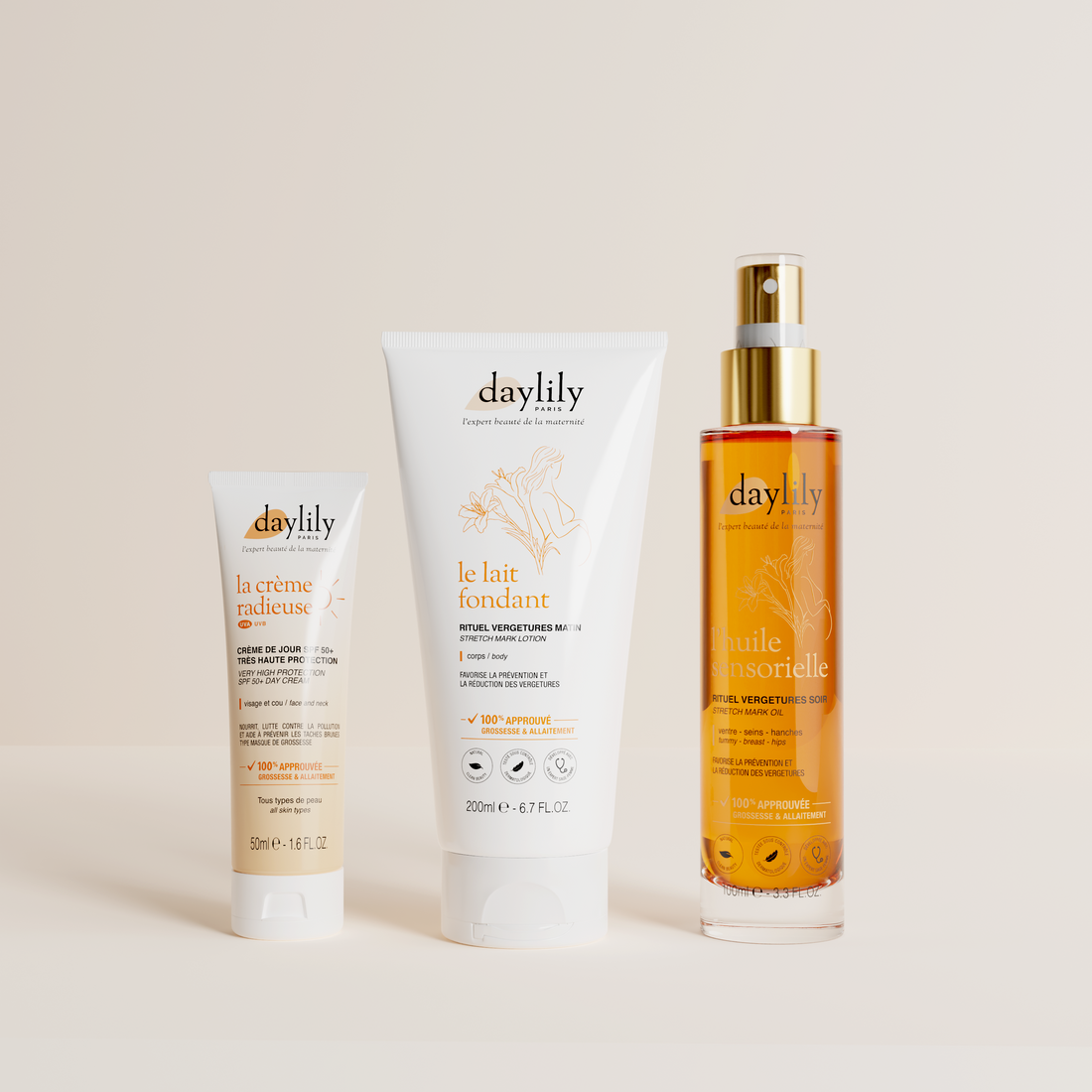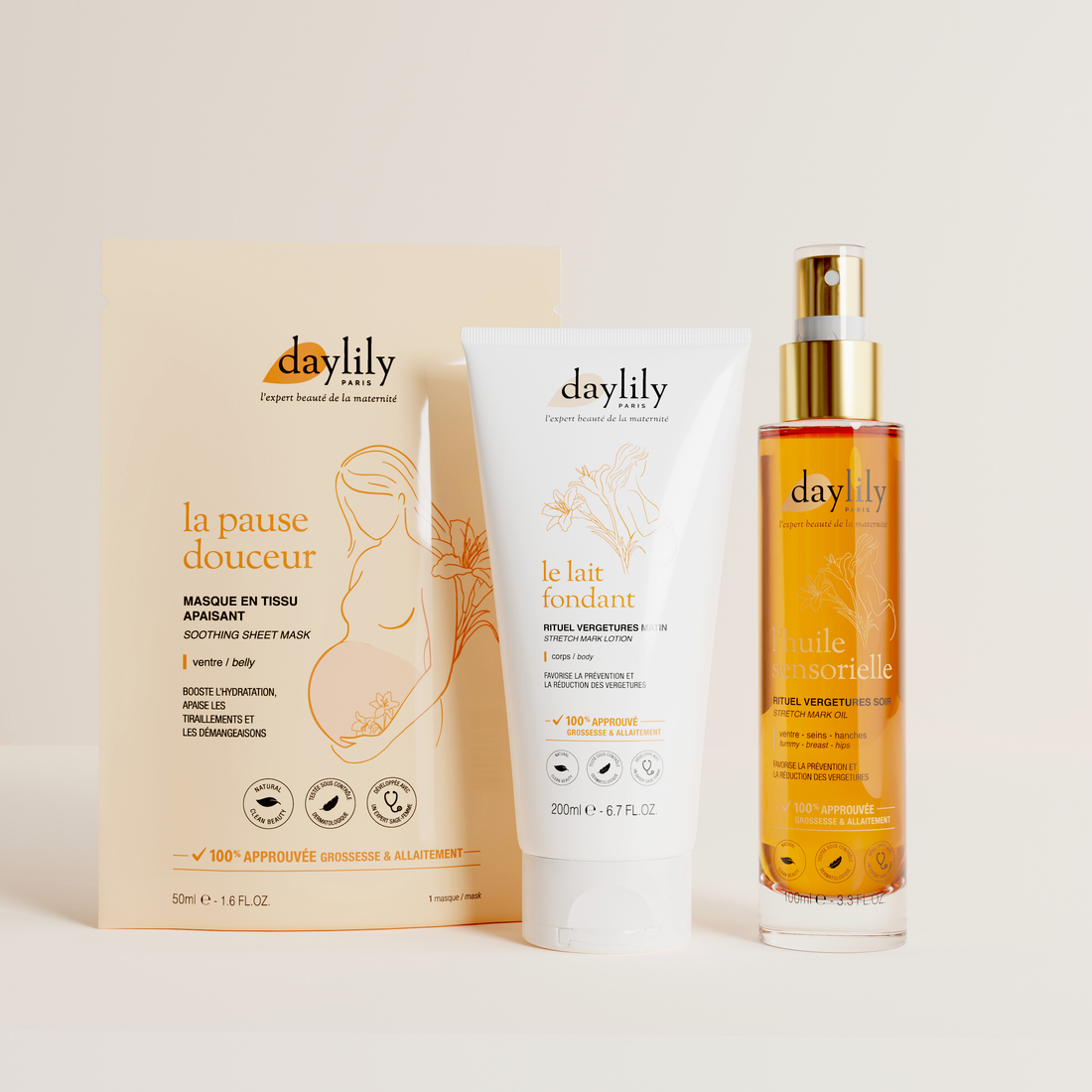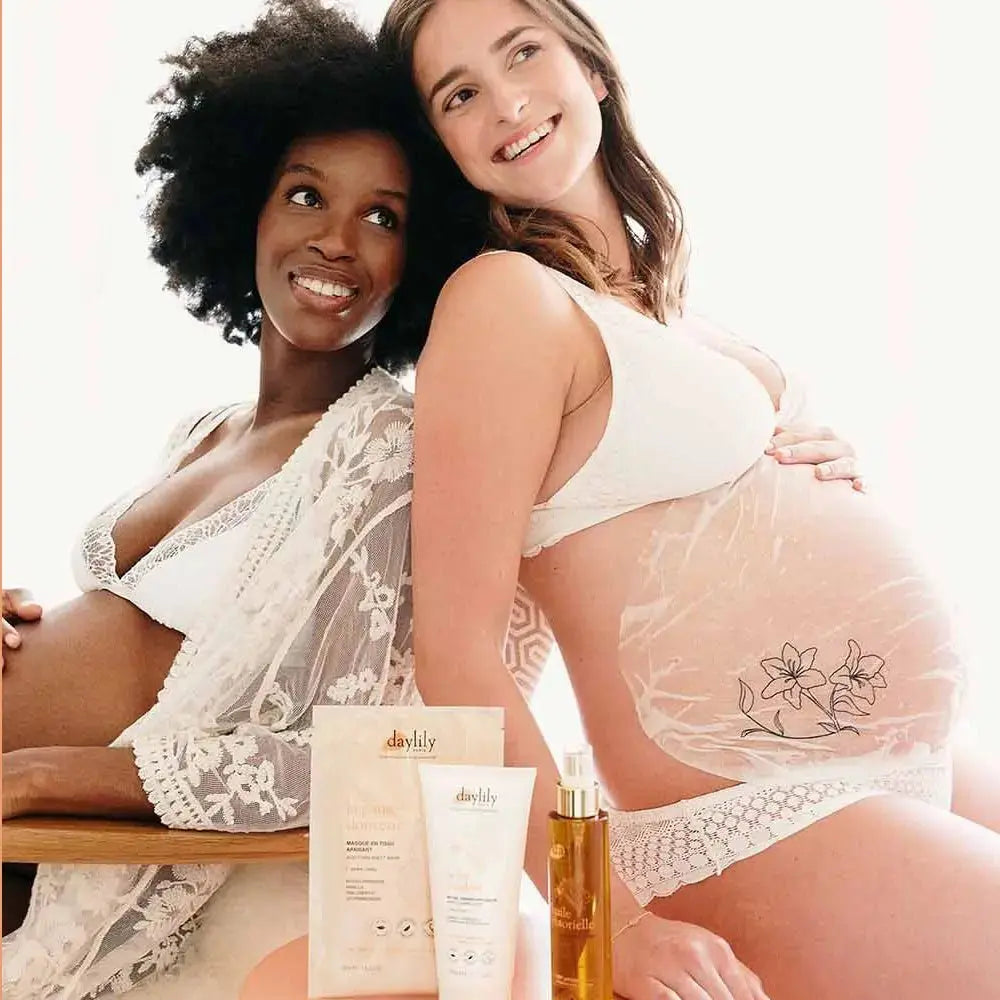When you are pregnant, the list of things not to do / not to eat / not to use often turns out to be very long, to the great dismay of future mothers! At the top of the list: the use of essential oils which are regularly singled out by magazines and health professionals. What is it really? Which essential oils can be used, and which should be absolutely banned? Let's take stock of essential oils during pregnancy, and their substitutes.
- Essential oils: better understanding how they work
- Essential oils during pregnancy: what are the risks?
- Using essential oils during pregnancy: precautions
- What alternatives to essential oils during pregnancy?
Essential oils: better understanding how they work
Essential oil is the result of the distillation of a part of a plant (leaf, root, flower, bark, etc.). Ultra concentrated in active ingredients, it can contain up to 200 different molecules . It enters the body through the bloodstream, and will therefore reach the embryo or fetus, which, very small and in full development, is much more vulnerable than you to this powerful cocktail!
Certain essential oils contain ketones - aromatic molecules with powerful pharmacological properties - and are systematically prohibited in pregnant women, because despite their usefulness, ketones are known for their double toxicity: neurotoxicity and abortifacient action, which can manifest itself in sensitive subjects.
Other essential oils should also be handled with care.
Essential oils during pregnancy: what are the risks?
While many medications and ingredients are not recommended for pregnant women, it can be tempting to turn to more natural alternatives, such as essential oils, to treat yourself or take care of your skin. Be careful, however: natural does not mean safe for you and your little baby!
Essential oils in pregnant women are in fact regularly criticized: their high concentration could cause hormonal imbalances, delays or problems in the development of the fetus, and in the worst case, cause a miscarriage.
For example, many essential oils such as sage, peppermint, globular eucalyptus, menthol eucalyptus and rosemary CT camphor are contraindicated and should be absolutely banned, at all stages of pregnancy and in women. breastfeeding. The list is not exhaustive !
Let's not demonize these natural remedies, not all essential oils are prohibited, and some (around thirty in total) can be used with caution from the 4th month of pregnancy. How to proceed ?
Using essential oils during pregnancy: precautions
As a general rule, it is not recommended to use essential oils throughout pregnancy and breastfeeding in order to respect the precautionary principle.
Indeed, using essential oils when you are pregnant is not trivial, and if you still want to use them, some precautions should be taken!
It is essential before any use to seek advice from a healthcare professional: your doctor, your gynecologist, your midwife, or a pharmacist specializing in essential oils. It will tell you which essential oils are compatible with pregnancy, how and how often to use them safely.
Some rules to follow:
- Generally speaking, the use of essential oils orally should be avoided, except on medical advice. There are exceptions: Lemon essential oil or Ginger essential oil can sometimes be prescribed by a specialist to relieve nausea – this is interesting if you suffer from morning sickness! Ask a competent person if this interests you and above all, do not self-medicate!
- It is also better to use them on the skin, avoiding applying them to the stomach area, too close to the baby, and to the chest. Always ask your doctor for advice before use, it's safer!
- Inhaling or using an essential oil diffuser is sometimes possible, always on medical advice.
- The dosage and duration of treatment recommended by your healthcare professional must always be respected!
- Finally, for greater safety, it is recommended to only use certified organic essential oils , from recognized brands, and to always buy your essential oils in your pharmacy or organic store.
What alternatives to essential oils during pregnancy?
Many cosmetic products contain essential oils, including (and especially) natural and organic products. You must therefore be careful because even if in general their concentration of essential oils is low and does not present a risk for your baby, you can never be 100% sure because the quantities are not specified on the packaging. “In principle”, potentially dangerous products should bear the words “not recommended for pregnant and breastfeeding women” but once again, this is not always respected by manufacturers. So, the best thing to do is still to ban essential oils from your beauty routine during these few months of pregnancy (and breastfeeding if applicable).
Fortunately, there are many alternatives when it comes to care products for pregnant women! You will be able to pamper your skin without any problem for the next 9 months.
Vegetable oils, for example, can be used safely and without moderation! Avocado Oil is one of the oils preferred by expectant mothers. Softening and regenerating, it also prevents the skin from cracking prematurely! It's the oil that wants you to feel good and is ideal for massaging, especially the stomach, from the first trimester until childbirth! As for Macadamia Oil , it is excellent for intensely nourishing the skin and also ideal for massage.
Also think about Muscat Rose Oil, which, during pregnancy, is particularly favored for its benefits on cell renewal. Rich in polyunsaturated essential fatty acids, it contributes to the suppleness and elasticity of the skin. It also has a strong healing and regenerating power, which makes it an active ingredient of choice for the prevention of stretch marks!
Sweet almond oil is also popular as the reference oil during pregnancy. However, prefer it diluted in other vegetable oils rather than using it pure.
Daylily anti-stretch mark treatments ( Sensory Oil and the Lait Fondant ) are also formulated from these vegetable oils and constitute a healthy and safe alternative to care based on essential oils since, in the interest of maximum safety, Daylily Paris has chosen not to use essential oils in its formulas to guarantee use with complete peace of mind from the first month of pregnancy and during breastfeeding.
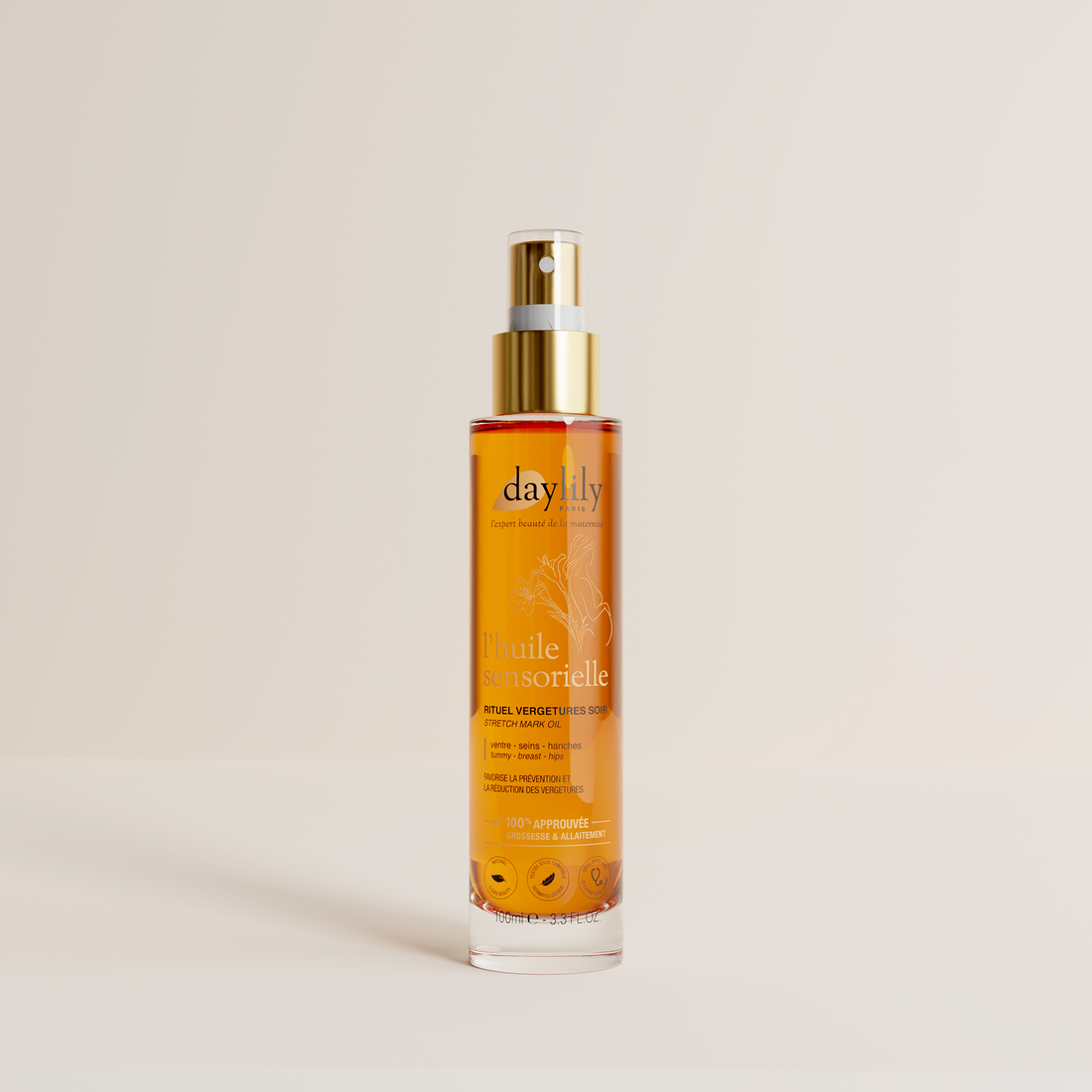

- Regular price
-
30,90 € - Regular price
-
- Sale price
-
30,90 €
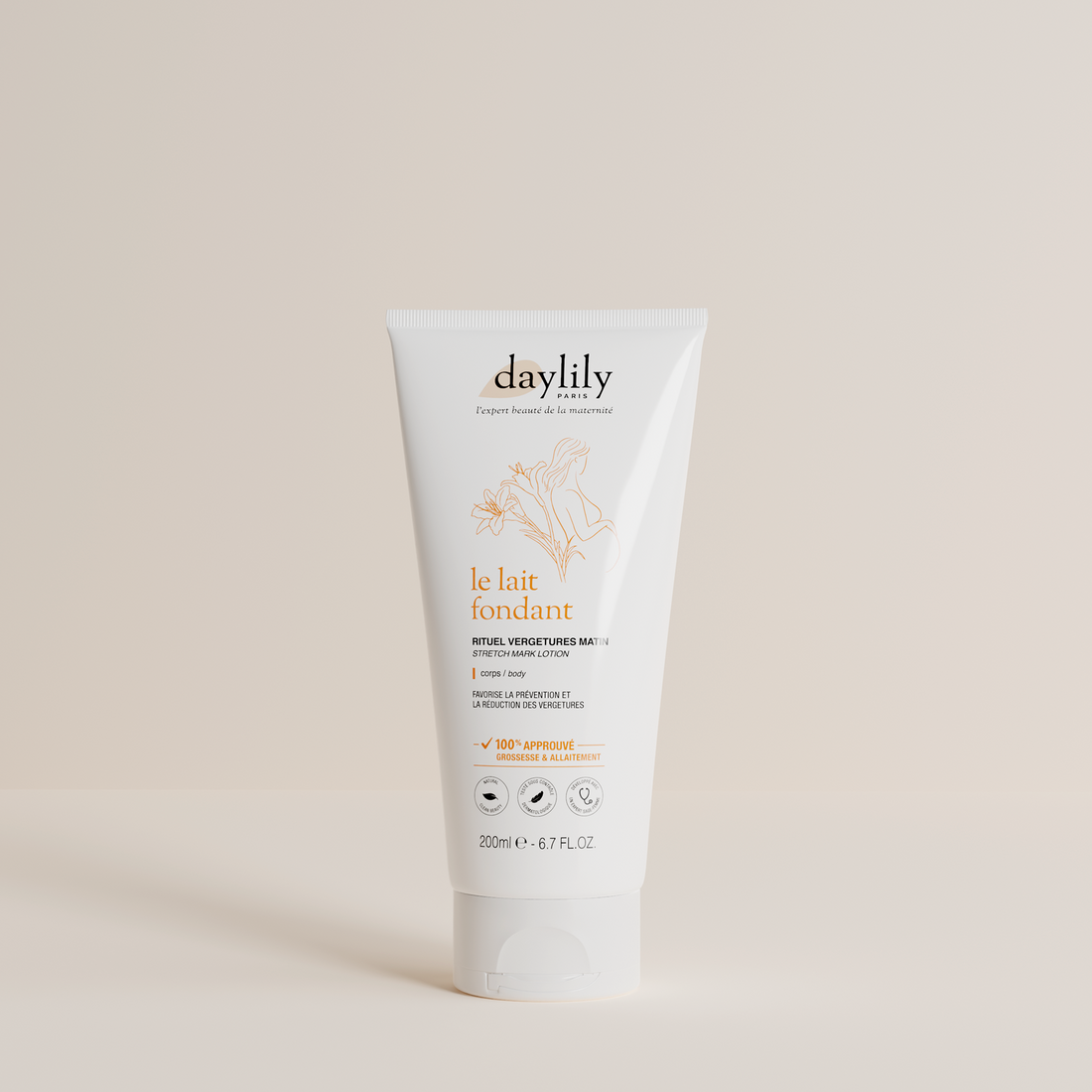
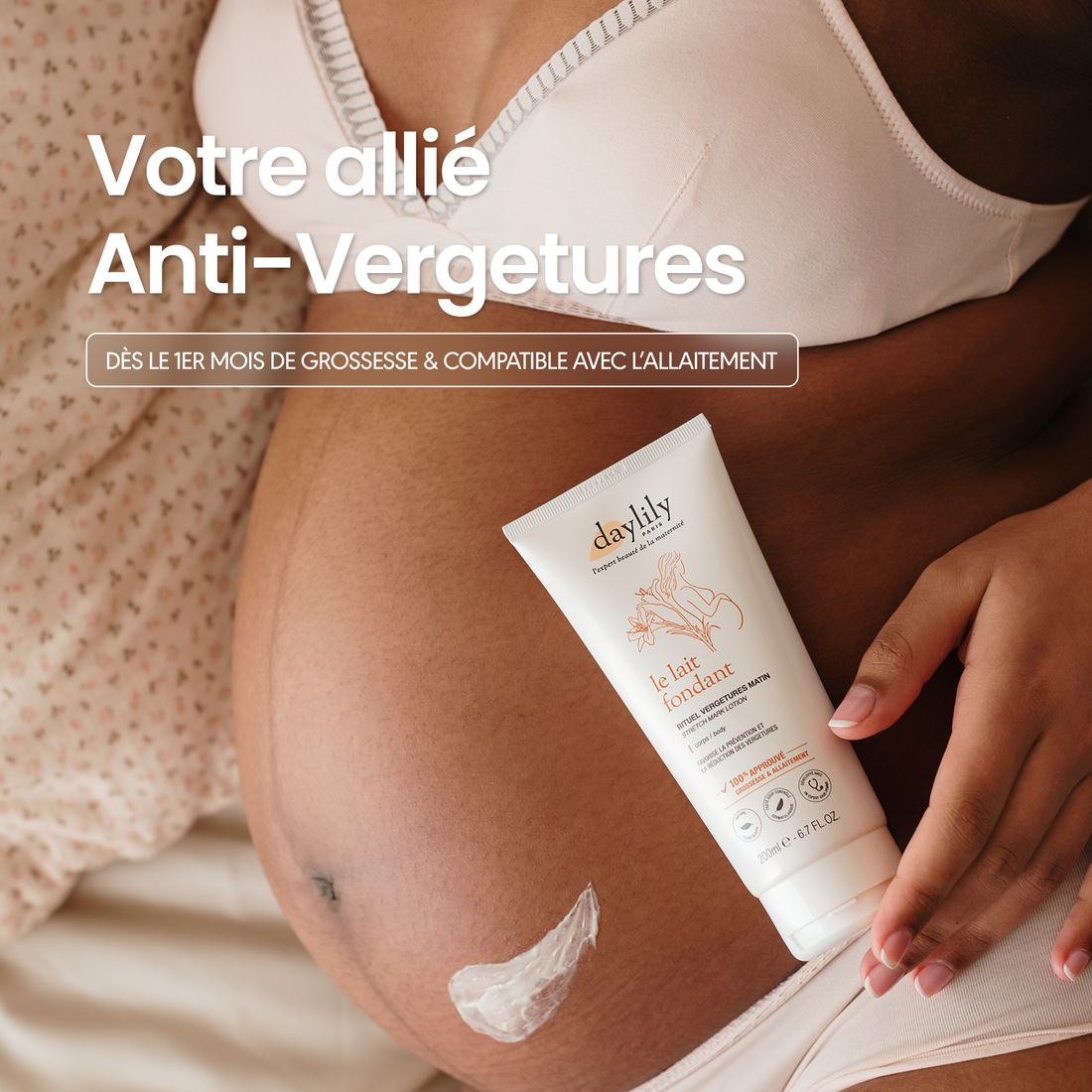
- Regular price
-
29,90 € - Regular price
-
- Sale price
-
29,90 €
Those who prefer enveloping and comforting textures can turn to plant-based butters like shea butter: highly nutritious, it can be used all over the body, and even on the hair! You can also opt for our Creamy Firming Balm , the 100% mum friendly treatment for soft and velvety skin, to be used safely during and after pregnancy.
=== add products 2 ===
The Creamy Balm
=== add products 2 ===
You now know everything about using essential oils during pregnancy! To go further and help you navigate, you can refer to our article on ingredients not recommended during pregnancy .


















